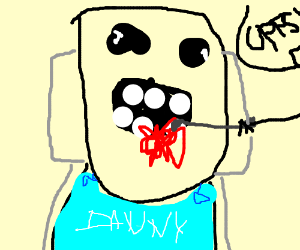Cheek Biting Solutions: Stop Habit

Biting one’s cheek is a common habit that can be frustrating and painful. It’s a behavior that often goes unnoticed until it’s too late, and the damage is done. Cheek biting, also known as cheek chewers or oral habit, can lead to mouth sores, swollen cheeks, and even affect dental work. If you’re one of the many people struggling with this habit, don’t worry – there are solutions to help you stop.
Understanding the Causes of Cheek Biting
To address cheek biting, it’s essential to understand why it happens in the first place. The causes can be varied, including:
- Stress and anxiety: People often bite their cheeks when they’re feeling stressed or anxious. This behavior can be a coping mechanism, providing a temporary distraction from emotional discomfort.
- Habits: Cheek biting can be a deeply ingrained habit, often developed in childhood. It may be a subconscious behavior, done without even realizing it.
- Dental issues: Misaligned teeth, ill-fitting dentures, or other dental problems can cause cheek biting.
- Nervousness: Some individuals may bite their cheeks due to nervousness or boredom.
Breaking the Habit: Strategies for Success
Now that we’ve explored the potential causes, it’s time to discuss solutions. Here are some effective strategies to help you stop biting your cheeks:
- Mindfulness and self-awareness: The first step to breaking the habit is to become more aware of when you’re doing it. Pay attention to your actions, especially during times of stress or boredom. When you catch yourself biting your cheek, stop immediately and take a deep breath.
- Stress management: Find healthy ways to manage stress and anxiety, such as exercise, meditation, or talking to a friend. This can help reduce the urge to bite your cheeks.
- Dental check-up: If you suspect that dental issues may be contributing to your cheek biting, schedule an appointment with your dentist. They can help identify any problems and provide guidance on how to address them.
- Behavioral therapy: Cognitive-behavioral therapy (CBT) can be an effective way to address habits like cheek biting. A therapist can help you identify triggers and develop strategies to overcome them.
- Keep yourself occupied: Engage in activities that keep your mouth busy, such as chewing gum, eating sunflower seeds, or playing with a stress ball.
It's essential to remember that breaking a habit takes time and effort. Be patient with yourself, and don't get discouraged by setbacks. With persistence and the right strategies, you can overcome cheek biting and develop healthier habits.
Additional Tips and Tricks
In addition to the strategies mentioned above, here are some extra tips to help you stop biting your cheeks:
- Use a mouthguard: Wearing a mouthguard, especially at night, can help prevent cheek biting.
- Apply topical cream: Certain creams or ointments can help numb the area, reducing the urge to bite.
- Practice relaxation techniques: Regularly practicing relaxation techniques, such as progressive muscle relaxation or visualization, can help reduce stress and anxiety.
- Keep a journal: Tracking when and why you bite your cheeks can help you identify patterns and triggers.
Step-by-Step Guide to Overcoming Cheek Biting
- Become aware of your actions and identify triggers
- Find healthy ways to manage stress and anxiety
- Address dental issues, if applicable
- Develop strategies to occupy your mouth and hands
- Practice relaxation techniques and mindfulness
Conclusion
Cheek biting is a common habit that can be challenging to break, but with the right strategies and mindset, it is possible to overcome. By understanding the causes, practicing mindfulness, and using the techniques outlined above, you can develop healthier habits and reduce the occurrence of cheek biting. Remember to be patient and kind to yourself throughout the process, and don’t hesitate to seek professional help if you need additional guidance.
What are the most common causes of cheek biting?
+The most common causes of cheek biting include stress and anxiety, habits, dental issues, and nervousness.
How can I stop biting my cheeks?
+To stop biting your cheeks, become more aware of your actions, find healthy ways to manage stress and anxiety, address dental issues, and develop strategies to occupy your mouth and hands.
Can cognitive-behavioral therapy (CBT) help with cheek biting?
+Yes, CBT can be an effective way to address habits like cheek biting. A therapist can help you identify triggers and develop strategies to overcome them.



